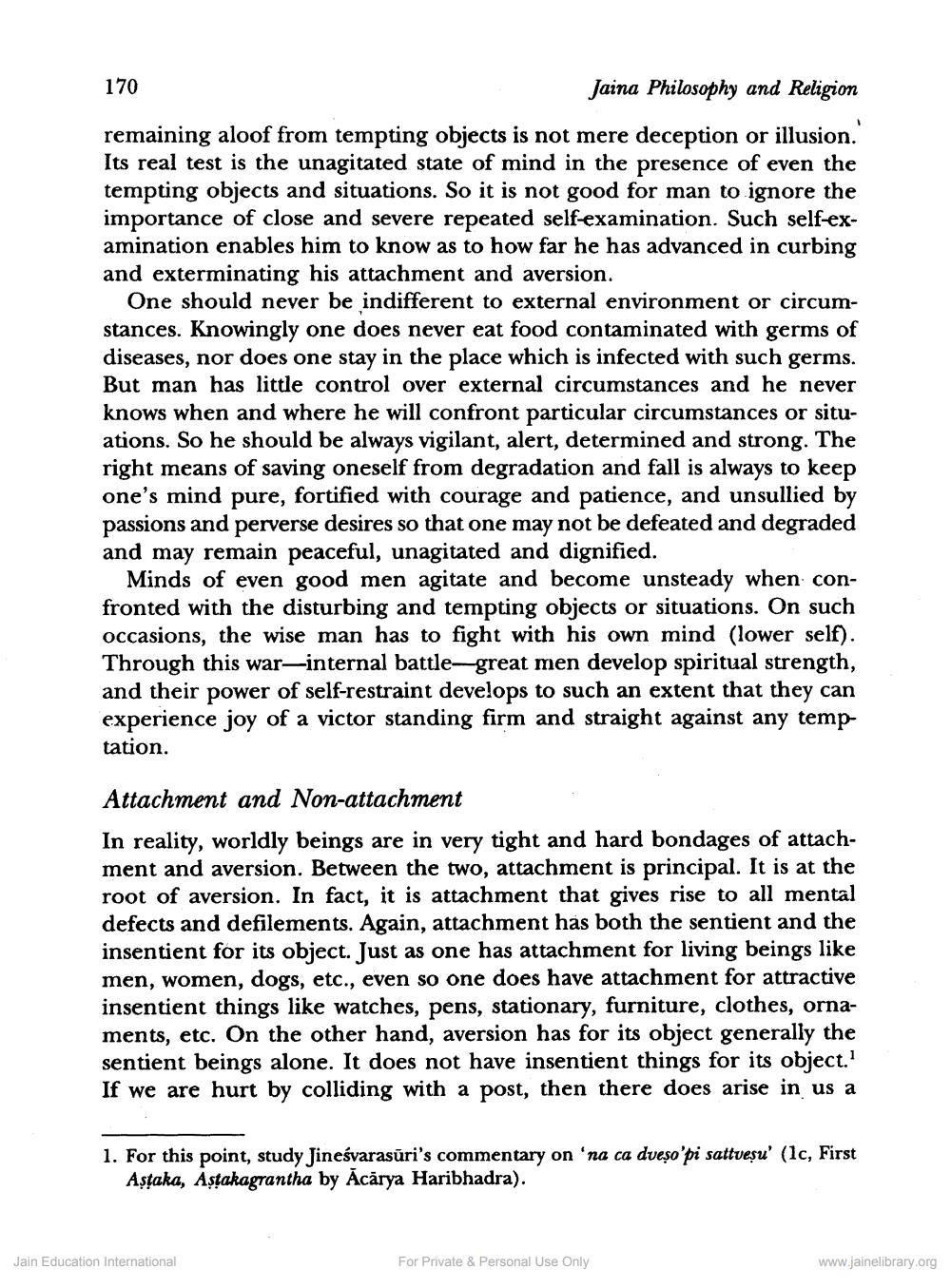________________
170
Jaina Philosophy and Religion
remaining aloof from tempting objects is not mere deception or illusion. Its real test is the unagitated state of mind in the presence of even the tempting objects and situations. So it is not good for man to ignore the importance of close and severe repeated self-examination. Such self-examination enables him to know as to how far he has advanced in curbing and exterminating his attachment and aversion.
One should never be indifferent to external environment or circumstances. Knowingly one does never eat food contaminated with germs of diseases, nor does one stay in the place which is infected with such germs. But man has little control over external circumstances and he never knows when and where he will confront particular circumstances or situations. So he should be always vigilant, alert, determined and strong. The right means of saving oneself from degradation and fall is always to keep one's mind pure, fortified with courage and patience, and unsullied by passions and perverse desires so that one may not be defeated and degraded and may remain peaceful, unagitated and dignified.
Minds of even good men agitate and become unsteady when confronted with the disturbing and tempting objects or situations. On such occasions, the wise man has to fight with his own mind (lower self) Through this war-internal battle-great men develop spiritual strength, and their power of self-restraint develops to such an extent that they can experience joy of a victor standing firm and straight against any temptation.
Attachment and Non-attachment
In reality, worldly beings are in very tight and hard bondages of attachment and aversion. Between the two, attachment is principal. It is at the root of aversion. In fact, it is attachment that gives rise to all mental defects and defilements. Again, attachment has both the sentient and the insentient for its object. Just as one has attachment for living beings like men, women, dogs, etc., even so one does have attachment for attractive insentient things like watches, pens, stationary, furniture, clothes, ornaments, etc. On the other hand, aversion has for its object generally the sentient beings alone. It does not have insentient things for its object. If we are hurt by colliding with a post, then there does arise in us a
1. For this point, study Jineśvarasūri's commentary on 'na ca dueşo'pi sattveșu' (lc, First
Astaka, Astakagrantha by Acārya Haribhadra).
Jain Education International
For Private & Personal Use Only
www.jainelibrary.org




